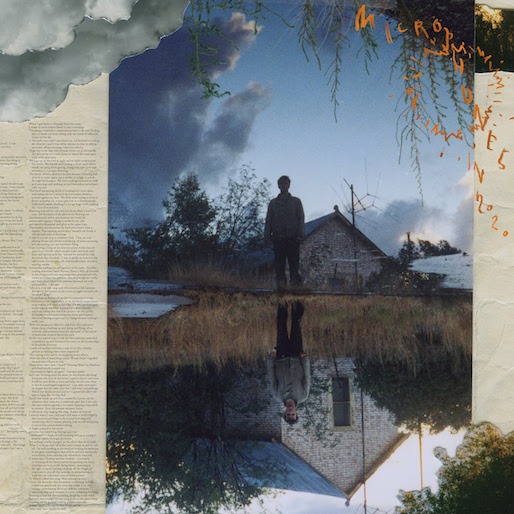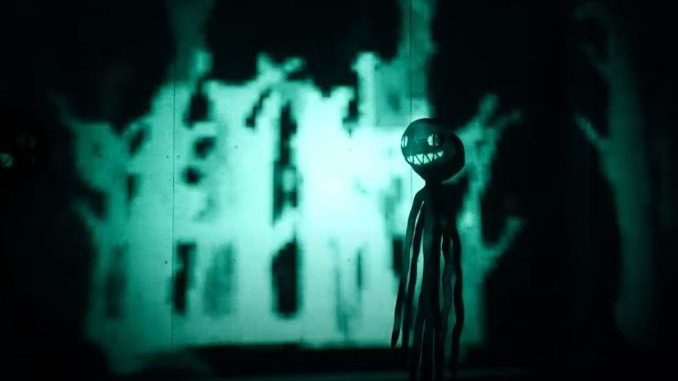About 80 miles north of Seattle, the small city of Anacortes sits perched on the edge of the Puget Sound. Most Pacific Northwesterners only really travel up to take the ferry to the San Juan Islands—former hidden gems which now attract flocks of tourists and even Oprah herself—but to view Anacortes as a glorified ferry dock would do the town a disservice. Besides its natural beauty, folk singer Karl Blau, musician Bret Lunsford of Beat Happening and Phil Elverum of the Microphones have all called it home. Elverum even drew inspiration from the local peak Mount Erie when naming his post-Microphones project (adding an extra “e” in there for good measure).
The last recording released under the Microphones’ name was 2003’s Mount Eerie, a precursor to Elverum’s creative shift. The notion that the Microphones disbanded is something of a misconception, because even though he collaborated with other musicians on the project throughout the years, the Microphones name is really synonymous with Elverum himself. Since assuming the Mount Eerie persona, he’s proven incredibly prolific, releasing 10 studio albums under his new name between 2005 and 2019. Elverum slipped back into the Microphones for a performance last summer, and when the stirrings around this choice picked up, he began toying with “what it even means to step back into an old mode.” The result is Microphones in 2020, the sprawling, one-track album lasting nearly 45 minutes.
Over the course of the record, Elverum rewrites his own personal narrative while also leading us on an existential journey. Examining his past isn’t strictly an act of nostalgia (“Self commemoration would be embarrassing. I don’t want to go backwards ever,” he wrote in an essay on the album), but more an exploration of how our relationship with our own personal history is unstable and ever-changing. “I remember my life as if it’s just some / dreams that I don’t trust, burning off, layered thick,” he sings dolefully about eight minutes into the song. Elverum recounts adopting the Microphones moniker as a 17-year-old in 1995—“I loved recording and the equipment seemed to be living and it sang to me like / static interference from the small AM radio station down the street”—and his subsequent journey as an artist, always trying to capture “the true state of all things” through drums or reverb-drenched guitar.
And what is this true state? Elverum describes it as a waterfall (“It’s just chaos heaving”), a continuous uncertainty with no fixed end. His cyclical lyrics both express and reflect this idea; “distorted bass, spliced tape, singing lines like ‘there’s no end,’ ” he sings near the beginning of the song. The last lines of the song repeat the notion: “Anyway every song I’ve ever sung / is about the same thing: standing on the ground looking around, basically. / If there have to be words, they could just be / ‘now only’ and / ‘there’s no end’.” Because of our constantly evolving existence, much like our always-mutating connection with the past, one of the most powerful and life-affirming things we can do is simply to experience the present fully.
Microphones in 2020 contains some of the year’s best, most reflective and probing lyrics. Elverum’s mastery of language is impressive thanks to his ability to capture an intangible, fleeting feeling without coming across as pretentious or out of reach. It’s honestly worth sitting down and reading the lyrics along with the song, consuming the words as poetry. His descriptions of nature are some of the most soul-stirring moments of the album, which isn’t surprising considering his lifelong sense of unity with the flora and fauna around him. “I started making my own embarrassing early tries at this / thing that sings at night above the house, branches in the wind bending / wordlessly, I wanted to capture it on tape,” he says of his early musical intentions.
Speaking of which, Elverum’s careful instrumentation provides the album with a beautiful sense of symmetry. He begins the album strumming wordlessly for nearly eight minutes on his first-ever guitar, evoking a moody, gray Pacific Northwest day. Throughout different points on the album he brings in distorted guitar, insistent percussion and vocal harmonies at precisely the right moments. The drums build as he tells the story of a certain clarity he had after watching Crouching Tiger, Hidden Dragon, the sharper direction of the sound reflecting his own heightened sense of personal purpose. And then, as Elverum describes the atmosphere of peace permeating the film, the percussion falls away, allowing his voice and acoustic guitar to guide the way once more. There are more instances like this: Heavy distortion when he mentions a life-changing Stereolab concert, percussion picking up as he discusses playing the drums on tour in Italy—the list goes on. These decisions give more meaning to the lyrics themselves, and in making these choices Elverum reiterates the idea that in life, we assign meaning ourselves as we see fit.
Elverum’s work proves as expansive as ever. An engrossing one-track album is no easy feat, but he draws us in with expertly rich, layered lyricism and immersive production. In exploring the myths he’s told about his own past, Elverum invites us to ponder our own existence as well.
Clare Martin is a cemetery enthusiast, hibernophile and contributing writer for Paste’s music and comedy sections. She also exercises her love for reality TV at HelloGiggles every now and then. Go harass her on Twitter @theclaremartin.




